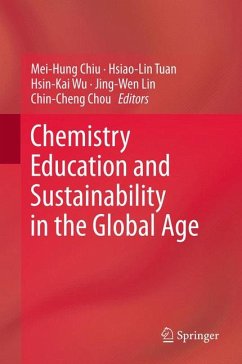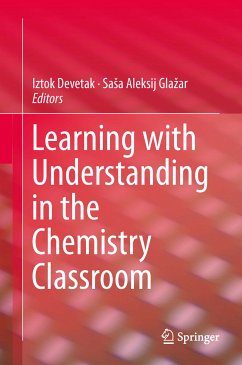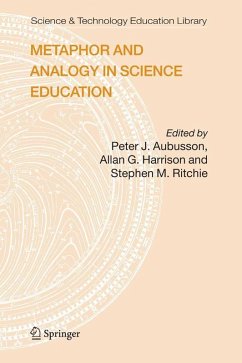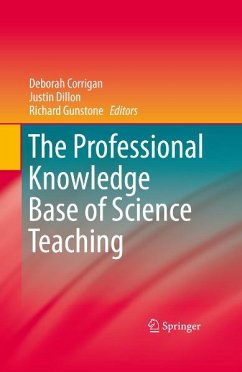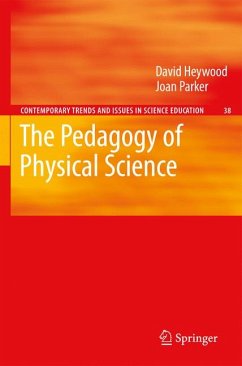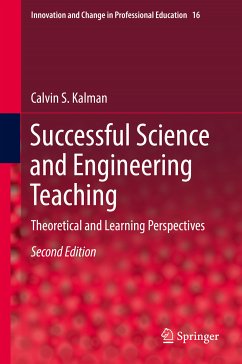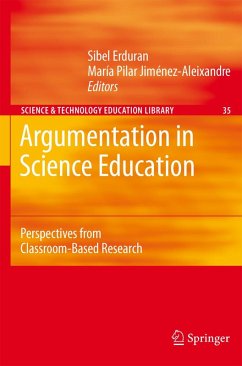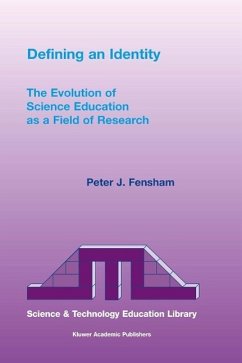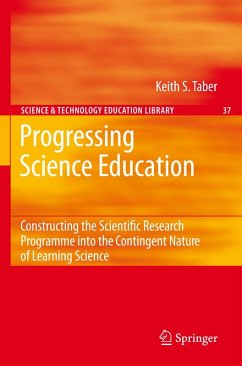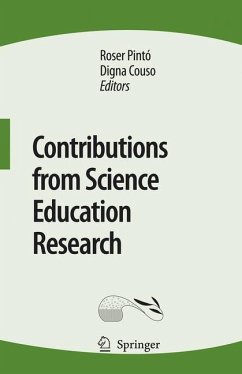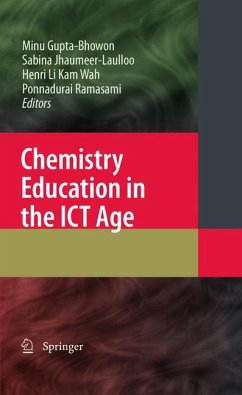
Chemistry Education in the ICT Age (eBook, PDF)
Versandkostenfrei!
Sofort per Download lieferbar
112,95 €
inkl. MwSt.
Weitere Ausgaben:

PAYBACK Punkte
56 °P sammeln!
th th The 20 International Conference on Chemical Education (20 ICCE), which had rd th "Chemistry in the ICT Age" as the theme, was held from 3 to 8 August 2008 at Le Méridien Hotel, Pointe aux Piments, in Mauritius. With more than 200 participants from 40 countries, the conference featured 140 oral and 50 poster presentations. th Participants of the 20 ICCE were invited to submit full papers and the latter were subjected to peer review. The selected accepted papers are collected in this book of proceedings. This book of proceedings encloses 39 presentations covering topics ranging from funda...
th th The 20 International Conference on Chemical Education (20 ICCE), which had rd th "Chemistry in the ICT Age" as the theme, was held from 3 to 8 August 2008 at Le Méridien Hotel, Pointe aux Piments, in Mauritius. With more than 200 participants from 40 countries, the conference featured 140 oral and 50 poster presentations. th Participants of the 20 ICCE were invited to submit full papers and the latter were subjected to peer review. The selected accepted papers are collected in this book of proceedings. This book of proceedings encloses 39 presentations covering topics ranging from fundamental to applied chemistry, such as Arts and Chemistry Education, Biochemistry and Biotechnology, Chemical Education for Development, Chemistry at Secondary Level, Chemistry at Tertiary Level, Chemistry Teacher Education, Chemistry and Society, Chemistry Olympiad, Context Oriented Chemistry, ICT and Chemistry Education, Green Chemistry, Micro Scale Chemistry, Modern Technologies in Chemistry Education, Network for Chemistry and Chemical Engineering Education, Public Understanding of Chemistry, Research in Chemistry Education and Science Education at Elementary Level. We would like to thank those who submitted the full papers and the reviewers for their timely help in assessing the papers for publication. th We would also like to pay a special tribute to all the sponsors of the 20 ICCE and, in particular, the Tertiary Education Commission (http://tec.intnet.mu/) and the Organisation for the Prohibition of Chemical Weapons (http://www.opcw.org/) for kindly agreeing to fund the publication of these proceedings.
Dieser Download kann aus rechtlichen Gründen nur mit Rechnungsadresse in A, B, BG, CY, CZ, D, DK, EW, E, FIN, F, GR, HR, H, IRL, I, LT, L, LR, M, NL, PL, P, R, S, SLO, SK ausgeliefert werden.




